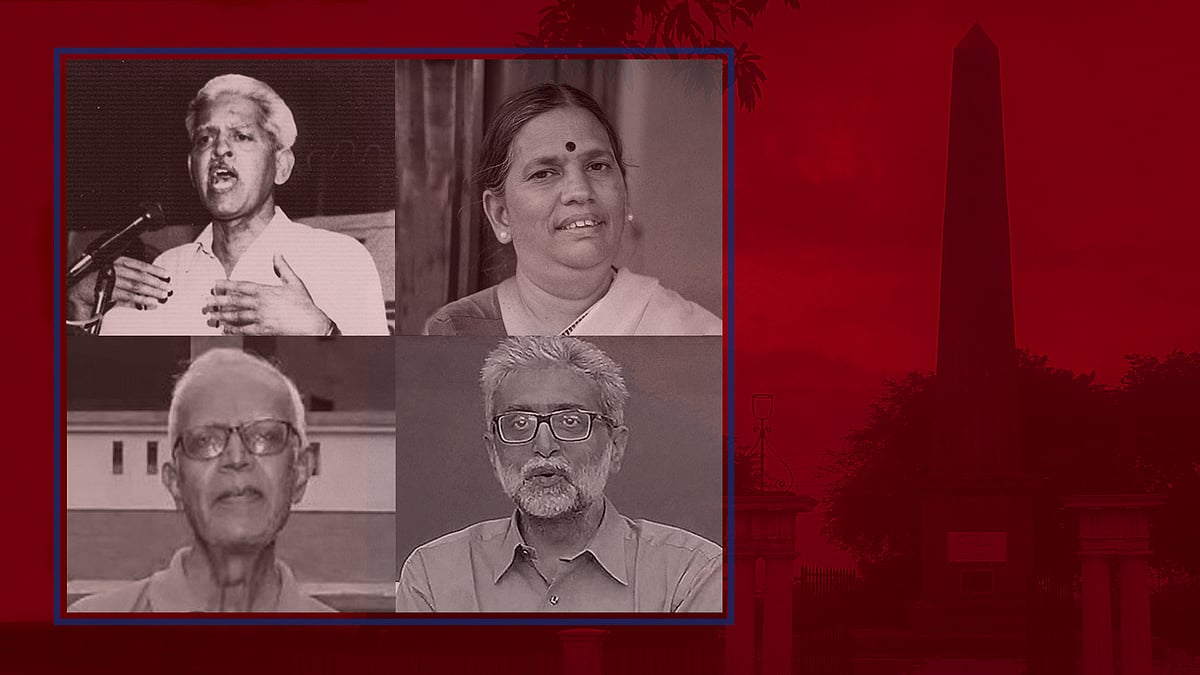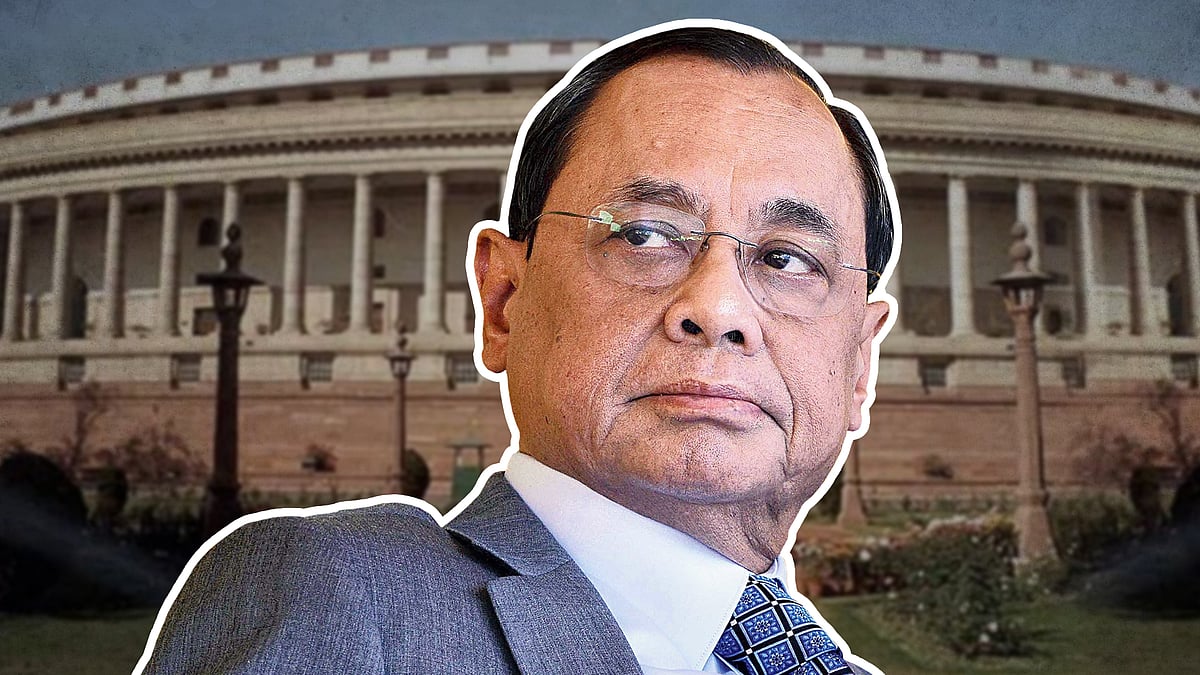How sealed covers in court became the norm for the state
As the Supreme Court calls for reforms in sealed cover jurisprudence, a look into the widespread practice.
In February 2022, the central government revoked MediaOne’s security clearance “for reasons of national security and public order.” The Malayalam news channel challenged the ban in the Kerala High Court and asked why it was taken off the air.
The central government produced documents explaining why – but handed it over to the court in a sealed cover. The high court upheld the ban based on these documents that MediaOne never got to see, assess or use to tailor its defense. The channel’s lawyers vehemently argued this point in court, saying it was essential that both sides have access to the other side’s material.
“The basic principle of natural justice is that a person who is being charged must know on what basis they are being charged,” senior advocate Dushyant Dave, who had appeared for MediaOne, told Newslaundry. “It affects the citizens and is a gross violation of the principles of natural justice.”
The Supreme Court agreed with Dave, temporarily staying the ban and saying it was “averse to sealed cover jurisprudence”. To use a sealed cover, a government would have to make a “very clear” case that disclosure of information to affected parties would seriously affect national security.
Since then, the apex court has consistently pulled up the central government for sealed covers. On March 20, Chief Justice of India DY Chandrachud refused to accept a sealed cover from the government in a hearing related to the one rank, one pension scheme.
“We want to put an end to the sealed cover business,” the CJI said. “This is fundamentally contrary to the judicial process. There cannot be secrecy in the court. The court has to be transparent.”
The Supreme Court in the past has accepted sealed covers in several controversial cases, including the denial of bail to activists in the Bhima Koregaon case, details of Assam’s National Register of Citizens, and allegations of sexual harassment against former CJI Ranjan Gogoi. But is it time for judicial reform?
‘Citizens have a right to know’
Order XIII, Rule 7 of the Supreme Court Rules, 2013 says the CJI or court can direct any document to be kept in a sealed cover if it considers such information to be confidential and not in public interest. In such a case, no party or person is entitled to receive copies or extracts from any minutes, letters or documents contained in the sealed cover.
Section 123 of the Evidence Act, 1872 also says official, unpublished documents relating to state affairs are private. A public officer cannot be compelled to disclose them.
Courts usually ask for sealed covers when the information required concerns an ongoing investigation or is personal in nature – the definition of “personal” is unclear. Parties can also decide to submit information in sealed covers if they believe the matter is sensitive.
A notable case that relied on a sealed cover is the Supreme Court’s hearing on the Rafale deal in 2018. The court asked the centre to submit “details of the decision-making process” in a sealed cover. Based on these documents, the court ruled that the materials placed before it indicated that the centre did not disclose pricing details of the Rafale jets in Parliament but had disclosed it to the CAG. The centre immediately filed a petition saying the Supreme Court had “misunderstood” the procedure detailed in the sealed cover.
Soon after, former Supreme Court judge Justice J Chelameswar said in widely publicised interviews that he would not have resorted to a “sealed cover procedure” had he been hearing the case.
“When called upon by the court for documents, any party can claim privilege. It is on courts to decide whether or not this privilege should be given,” Justice Chelameswar told Newslaundry. “But if a party claims privilege and the courts grant it, the opposition cannot see the documents. In public law, when there are documents of state involved, there can always be some documents that are sensitive from a nation’s point of view. The court needs to use its discretion and come to a conclusion.”
Dave said there are cases “everyday between state and citizens” and so the state cannot afford to withhold documents. “The state plays a vast role today. If the state says they won’t disclose information in this case and that case where consequences are serious, it won’t work.”
He added, “What’s been happening in India in the last eight years is shocking. In matter after matter, lawyers get up and say ‘sealed cover’. Citizens have an absolute right to know.”
‘Being misused in a big fashion’
Last month, while hearing the Adani-Hindenburg case, a CJI-led bench of the apex court rejected the centre’s proposal to file its suggestions about a committee in a sealed cover.
“We will not accept sealed cover suggested by you,” the bench said. “We will tell you why. In constituting a committee, we want to maintain full transparency. The moment we accept a set of suggestions from you in a sealed cover, it would mean the other side have not seen it.”
And this would give an “impression” that “this is a government appointed committee which the Supreme Court has accepted, even when we do not accept your suggestions.”
Senior advocate Gopal Sankaranarayanan told Newslaundry that sealed covers “are being misused in a big fashion”.
“It’s completely uncalled for the courts in our country to accept sealed covers in what they think are sensitive cases,” he said. “Sensitive is subjective and could be applied to anything.”
He illustrated this with an example. Suppose party A decided to sue party B over the violation of a book contract saying the material belonged to them, not B. B could say it was original work created by someone at their instance but they couldn’t show A the contract since it was confidential.
Similarly, Sankaranarayanan said, “In some criminal investigations where bail was sought, the prosecution would come and tell the court the investigation has revealed xyz so far and we are putting it in a sealed cover. It’s disturbing and difficult for defense attorneys. An accused must be given the opportunity to see evidence and use it to question witnesses for the prosecution.”
He added, “Sensitive happens only because we treat the government as if it’s a special entity. For law and justice, the government is a party before court, just like the rest of us. In a transparent judicial process, you can’t have contents between one party and the court which the other party is not privy to.”
Senior advocate Siddharth Luthra said sealed covers should only be used wherever the law mandates that material or identity is to be kept protected. An alternative is to redact identity-related content.
“Besides that, the use of sealed covers must be curtailed as it detracts from natural justice, right to a fair trial, and open court principles,” he said. “In my view, sealed covers are only relevant when state privilege is sought to be claimed, and that claim must be supported by an affidavit. Only if the court is satisfied with the claim of privilege can it be allowed.”
During criminal investigations, Luthra said, reports or documents can be handed over in a sealed cover because until that stage, an accused is not entitled to access case diaries. “But after that stage, the sealed cover has no meaning,” he said.
 Bhima Koregaon case: Three years of legal and rights violations
Bhima Koregaon case: Three years of legal and rights violations
 ‘His Eminence’ Ranjan Gogoi and a legacy of deliberate omissions and commissions
‘His Eminence’ Ranjan Gogoi and a legacy of deliberate omissions and commissions
